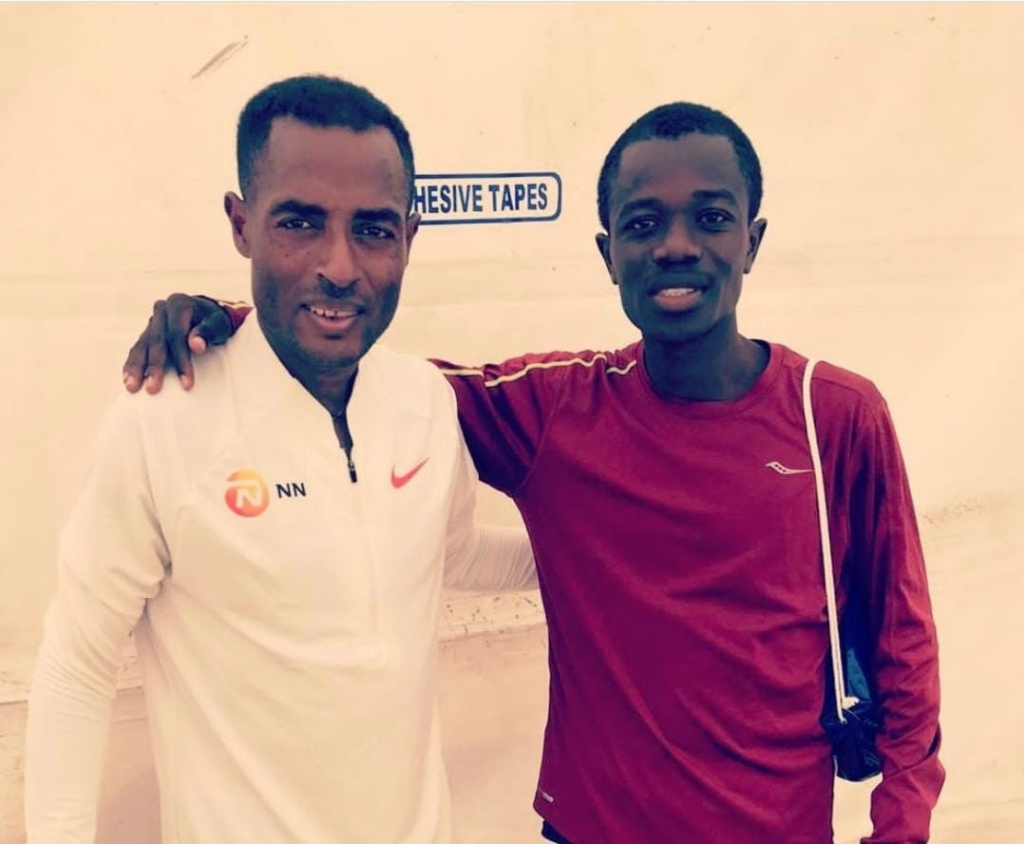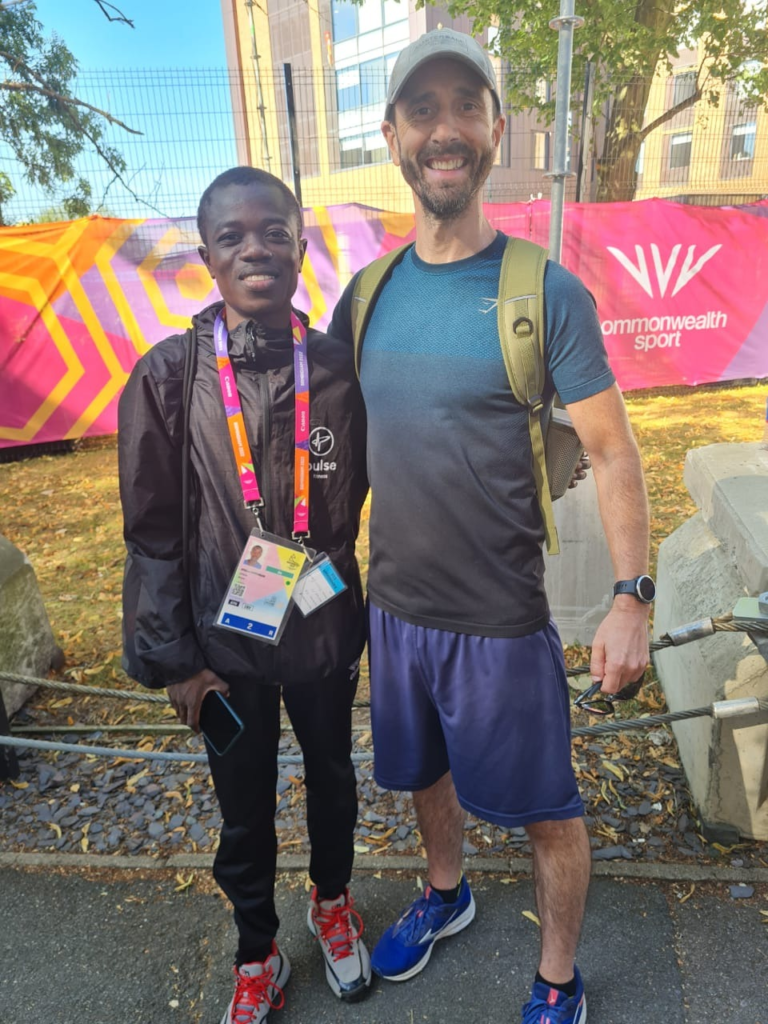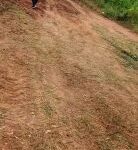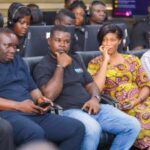William Amponsah took his emerging status as a budding African long-distance sensation to the next level after placing 8th in the 2022 edition of the Great North Run held in the United Kingdom.
The race saw over 60,000 elite runners including half marathon world champion, Kiplimo, who recently won double gold at the 2022 Commonwealth Games, Olympic 10,000m champion Selemon Barega and Amponsah’s role model, Kenenisa Bekele.
There was a huge improvement from Amponsah as we have seen the entire year following his huge half marathon Personal Best (PB) of 1:03:15. But why any performance in the Great North Run is a big deal and what kind of competition is it?
About the Great North Run
The Great North Run is the largest half marathon in the world, taking place annually in North East England each September. Participants run between Newcastle upon Tyne and South Shields. The run was devised by former Olympic 10,000 m bronze medalist and BBC Sport commentator Brendan Foster.
The first Great North Run was staged on 28 June 1981, when 12,000 runners participated. By 2011, the number of participants had risen to 54,000. For the first year, it was advertised as a local fun run; nearly thirty years on it has become one of the biggest running events in the world, and the biggest in the UK.
The Great North Run starts in Newcastle upon Tyne on the A167 road (the central motorway), on the edge of both the city centre and the Town Moor. The last mile (1.6 km) of the route runs along the seafront road to the finishing line at South Shields. And this year, there was a record number of participants in the region of 60,000.
Racing with a mentor
Amponsah’s all-time role model, Kenenisa Bekele, was present at the Great North run. For the uninitiated, he was the world record holder in both the 5000-metre and 10,000-metre events from 2004 (5,000m) and 2005 (10,000m) until 2020. He won gold in both the 5000m and 10,000m events at the 2008 Summer Olympics.

At the 2004 Olympics, he won the gold medal in the 10,000m and the silver medal in the 5000m. In fact, Kenenisa won the 10,000m title at the World Championships in Athletics in 2003, 2005, 2007 and 2009, matching Haile Gebrselassie’s four-in-a-row win streak. Amponsah narrated his encounter.
“I think before we even got to the start, I saw him and then he was just sitting down, so I greeted him. He said hi, I told him I have been watching him since JHS. I was so glad to see him and even after the race, I got the opportunity to take a picture with him”.
Finishing 8th in 60,000 elite runners
Amponsah coming into the competition had broken the existing 5000m national record at the Commonwealth Games weeks earlier. In Birmingham, Amponsah run a time of 13.51.63 and placed 13th in the 5000m final. That performance secured him a ticket and his work was cut out – he indeed had his work out but succeeded.
“Every year, my times improve and that’s exactly the goal I have set. I want to do better than my previous year – so that has been my focus and Mr Todd also speaks to me a lot. In our place, everyone says, ‘win it, win it’ but sometimes it takes time. It’s always in my mind that I have to make progress in every race. Every progress I make gets me closer.
“When we started, I planned to run my own race. So when we all started, I realized that I could move together with them to some point, so I just had to keep up with them. So as we were going, I was okay. I was inside them, I saw Kiplimo because I had raced with him in the Commonwealth Games [and] I had already told Mr Todd that I’ll finish in the top 10, so as I was going all that was running through my head was ‘top 10’. When it got to the last 3k, I knew I was eighth and I could even hear people say it – you are 8th, top 10!
“So I knew – but someone was chasing me, if you check the time. I run 1 hour, 3 and 15 and the person did 1 hour 3 and 16. So I was determined to stay there and as the guy kept chasing me, I was forced to go faster – I was so excited. In the last 400m, he kept coming at me, but I continued pumping. So I was excited when I crossed the finish line. I said ‘wow, you did it.”
Where did Amponsah’s performance rank?
Executive Director of Transforming Teaching, Education & Learning, Robin Todd, who facilitated the move and kept faith with William Amponsah, explains his progress is encouraging,

“In Ghana, we need to start giving distant races some attention. We don’t have any IAAF-certified races here in Ghana. Often when we run races, the courses are not accurately marked – particularly with road running. So William now needs to run international races, running in Ghana is not going to help him get IAAF ranking points.
“I feel the next stage for him is a training camp in Ethiopia, Kenya or Uganda. We are following up Uganda, we think Uganda could be very promising. Longer term? A training camp and let’s look at the World Half Marathon Championships, let’s look at the All Africa Games and we will take it from there,” He added.
What next for Amponsah?
Given that William Amponsah has improved in every competition he has participated in, there surely must be a way to keep it going. This year Amponsah beat off competition from Koogo Atia and former Kwahu Marathon winner, Ishmael Arthur, in a time of 1:12:35 to defend his title in the 21km race which started from Nkawkaw and ended at Mpraeso.
He participated in the Africa University games held in Kenya and won bronze in 10,000m with a time of 30:34:57, then headed to the Commonwealth Games to break the national record. Grant Chapman, a coach, who has been working with Amponsah, wants more international competitions.

“It sounds a bit crude, but it comes down to money perhaps, because money buys plane tickets if he wants to race in other countries. He’s lucky here that, Mr Todd has been able to fund him in some ways also, the running club I run for, one of the people in the club is going to give him his accommodation. But in future, that is absolutely what he needs.
“Once he’s on the start line, he’s doing all the right things or he will be soon. But often these races on the big international fields can be in different countries. He does very well in Ghana – there are a number of excellent races in Ghana, but he needs to be amongst the elite.”
Another suggestion is to have William Amponsah acclimatize to enabling environments in Africa. The option of Uganda and Ethiopia pop up immediately and thankfully Robin Todd, who is so encouraged after this performance has plans for the University of Education, Winneba student.
”I think the thing which encourages me the most is, William is only 22-year-old, and if you look at distance running, this is a sport where you peak in your mid to late 20s, not in your 30s. Kekeli who was running today is 40-year-old so generally what happens is you start out with the 5000 and 10,000 when you are in your 20s. Then you transition when you are in your 30s to the half-marathon, marathon.
“William has natural endurance – He is a better 21km runner than a 5k runner – in my opinion. He doesn’t have that fast kick, but he’s got that heart and endurance. So if he is advised well and manages his career well, he’s got 20 years of running ahead of him and it’s going to be another 5-6 years before he hits his peak”
Half marathon world champion Kiplimo – who recently won double gold at the Commonwealth Games -crossed the line in 59 minutes 33 seconds to win the men’s elite race. Olympic 10,000m champion Selemon Barega was second, with his Ethiopian compatriot Kenenisa Bekele placed third. In the elite women’s race, two-time Olympic 5,000m silver medalist, Obiri won in a time of 1.07.05 for her second successive Great North Run title.





